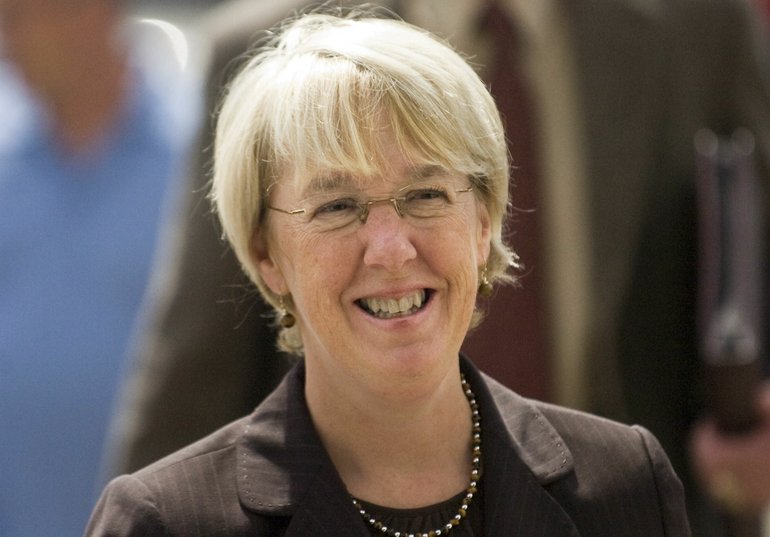o Previously: Sen. Patty Murray, D-Wash., introduced the Main Street Lending Restoration Act in December to use $30 billion from the Troubled Asset Relief Program to support small-business lending by community banks.
o What’s new: Murray mentioned the bill to Treasury Secretary Timothy Geithner in a Senate Budget Committee hearing and asked for his support.
o What’s next: The committee will decide if the bill goes to the Senate.
Sen. Patty Murray, D-Wash., urged U.S. Treasury Secretary Timothy Geithner in a budget hearing Wednesday to shift the Obama administration’s approach to increasing small-business lending by community banks.
o Previously: Sen. Patty Murray, D-Wash., introduced the Main Street Lending Restoration Act in December to use $30 billion from the Troubled Asset Relief Program to support small-business lending by community banks.
o What's new: Murray mentioned the bill to Treasury Secretary Timothy Geithner in a Senate Budget Committee hearing and asked for his support.
o What's next: The committee will decide if the bill goes to the Senate.
On the table is the president’s 2010 budget proposal, which includes a plan to use $30 billion in unused Troubled Asset Relief Program funds to provide loans to community banks.
The approach is similar to one undertaken by the Treasury in 2008, which aimed to expand lending by distributing $250 billion to small and mid-sized banks under the capital purchase program by buying up bank shares.
“We know that didn’t work,” Murray said. “Instead of expanding lending, banks that received those capital injections put it in to strengthen or buffer against losses.”
Murray pushed her own proposal, the Main Street Lending Restoration Act, which would instead use that $30 billion to create a fund that would buy troubled assets from community banks and sell them later to private investors.
With bad loans off their books, banks could take the cash they would normally keep on hand to guard against those losses and use it to start lending again.
Geithner disagreed that the 2008 approach was a failure, but expressed a desire to work with Murray on her proposal.
“The capital investments placed in the U.S. banking system were exceptionally effective in improving overall credit conditions,” he told her. “And the best measure of that is what happened to the cost of credit for all businesses, for homeowners and municipal governments.”
To make her case, Murray cited Washington’s high unemployment rate along with the closure of six state banks. Small and mid-size banks throughout the country are still unable to lend at a time when businesses desperately need to create jobs, she said.
Lenders skeptical
But at least two Clark County lenders are leery of any proposals to spend TARP funds on community banks.
“I’m concerned because of the way the TARP program was handled in the first place,” said Ron Wysaske, president of Riverview Community Bank in Vancouver. “It was pretty apparent it was something of a trap. If you took TARP money, you were then subject to any number of wills that weren’t necessarily made clear upfront.
“There’s probably a lot of hesitation or caution on the part of community banks,” Wysaske said.
Credit unions, too, have cause for concern. The proposed legislation is focused on helping community banks, which could place credit unions at a competitive disadvantage in the ability to provide loans.
“The credit unions were left out of the last TARP and we’re kind of being left out of this one,” said Steve Kenny, CEO of Columbia Credit Union in Vancouver.
“Most credit unions didn’t get as involved in riskier loans like real estate, but others are just the victim of the economy. If the bill doesn’t treat them the same (as banks), it would put us at a disadvantage.”



